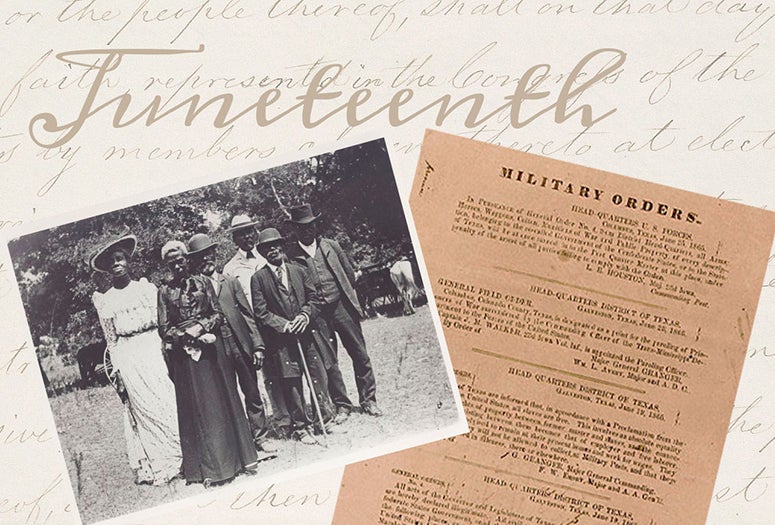Juneteenth has been celebrated in Texas since the end of the Civil War, a commemoration of the day in 1865 when news finally reached enslaved peoples in Galveston that they’d been freed by the Emancipation Proclamation.
Now Rice is honoring the holiday with an annual Juneteenth lecture series to discuss issues of race, racism and injustice. The inaugural daylong event was held June 19.
Over 3,200 people watched online Friday as nine Rice professors offered 20-minute lectures with short Q&A sessions on such topics as slavery before and after Juneteenth, media coverage of protests, racial bias and the Second Amendment, and criminal justice under Jim Crow laws.
Former Army Capt. Paul J. Matthews, founder and chairman of Houston's Buffalo Soldiers National Museum, also spoke for an hour during a talk moderated by Associate Provost Roland B. Smith Jr.
“I'm pleased to come together to commemorate this very important event in the history of the United States and what I believe is one of the most critical and pivotal times in our history,” said Rice Provost Reginald DesRoches as he introduced the day’s guests.
The series was organized by the President and Provost’s offices with assistance from the Office of Diversity and Inclusion; the Office of Multicultural Affairs; the Center for African and African American Studies; and the Task Force on Slavery, Segregation and Racial Injustice.
The daylong program featured lectures from experts throughout the university.
Among the speakers were sociology professor Jenifer Bratter, the director of the Program for the Study of Ethnicity, Race and Culture at Rice’s Kinder Institute for Urban Research, whose lecture was entitled “Reflecting on the Lessons of Juneteenth: Racial (In)Justice and the Role of Place”; Pulitzer Prize-winning history professor Caleb McDaniel, who spoke on “Slavery Before and After Juneteenth”; and Dr. Alexander Byrd, Associate Professor of History and Associate Dean of Humanities, who discussed “Race, Schools and Freedom Now.”
Other lectures offered insight into race and the criminal justice system, media coverage of protests, the Second Amendment and racial bias and how people and organizations can combat racism. A full lineup of speakers and topics is available at president.rice.edu/juneteenth.
For those who couldn’t watch the presentations live, the entire lecture series is now available for viewing online on Rice's YouTube channel.
“If we're going to mark and celebrate Juneteenth, we should do so with a knowledge and awareness of the history of slavery, and the racial legacy that followed,” DesRoches said. “Today's lecture series is an opportunity for us to reflect, to learn and to begin a conversation on how we might build a more diverse, equitable and inclusive community at Rice and beyond.”

